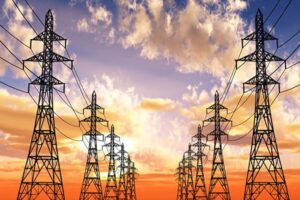‘Federal govt didn’t issue any notification to gas companies for GIDC’

There is not a single notification issued by the government wherein the government has instructed the gas companies to charge the Gas Infrastructure Development Cess (GIDC) amount from the consumers.
This was informed by Anwer Kamal Advocate to the Supreme Court of Pakistan in his arguments on Wednesday’s hearing. He informed that in sub section 2 of the validation section there is only a clause of charging level and it cannot self-activate. There must be a notification but the government did not issue any notification to any company for charging the same in the gas bills even under the Act 2011, ordinance 2014 and also in 2015 Act.
A three-member bench of the apex court, headed by Justice Mushir Alam and comprising Justice Faisal Arab and Justice Mansoor Ali Shah heard the case.
Court taken notice of Mr. Kamal’s point and inquired from Deputy Attorney General (DAG) and also called Rana Waqar, counsel of gas companies. DAG made excuse and informed the court that he is not aware of the fact that on whose directions, gas companies started charging the Cess while Rana Waqar was not present in the court. Judges directed DAG to make sure that both gas companies’ representatives must be in the court tomorrow with proof and supporting documents to answer the question.
Rashid Anwer informed the court that in the Durrani Ceramics judgment the court declared the GIDC as Cess/Fee and not tax. But government intentionally charged it under the tax head and disbursed the funds into other irrelevant projects. He further informed that the government has no funds available with them which they are showing in their accounts even for a gas project the government had not a fund to spend. Regarding any benefits of uninterrupted gas supply, Rashid Anwer informed the court that TAPI and Iran Pakistan Pipe lines projects are not possible in future due to terrorism in Afghanistan and sanctioned levied by US on Iran, he further informed that KP and Sindh have surplus gas so the two provinces do not require any infrastructure while for the others RLNG terminals are available and regular supply of RLNG to the consumers in demand are made through the infrastructure already in operation.
Makhdoom Ali Khan endorsed the point of Rashid Anwer and informed the court that as the Cess/fee is for a specific purpose so it is necessary to kept it separately and use for the specific cause/object, while any other money received as income/tax is kept into in Federal Consolidative Fund or Devisable Pool. So the government intentionally kept the money in these accounts and considered it as tax to utilize it in other projects/places.
Court taken notice of the above and commented that if the government intentionally treating it as tax then it is necessary that the provinces must receive the royalty of the same and directed to inform the court by today that whether any province have received any share under NFC in this regards. Also passed comments on the surplus of gas in the Sindh and KP provinces that this issue must be raised by the provincial government in the ECC.
Salman Akram Raja informed the court that his clients i.e. fertilizer companies have agreement with Marry Gas Company for uninterrupted gas supply while the gas pipelines also laid down by the fertilizers on their own cost as well as usage of RLNG is not viable for them due to its high price. While they have no link with SSGC or SNGPL but with Marry Gas who is supplying gas only to fertilizers and they did not need any relief nor any benefit as if the Marry Gas stopped supply to them then due to unviability they will close their project. He requested the court as there is no Quick Pro Quo to the fertilizers so any decision may not be applied on them.
On discrimination, Makhdoom Ali Khan informed the court that as per schedule, government is charging different rates while as per their arguments in the court that imposition of GIDC is for the regular supply of gas to consumers, so as the government will supply the gas uninterrupted to all consumers then why they are charging different rates and if charging different rates then the sectors must be treated as per their rates and special benefits to them be given.
Court also allowed some interveners whose cases earlier dismissed by PHC and SC wherein the petitioners challenged section six of the act as the federal government failed to make rules for the GIDC Act 2015 and using the rules of 2011. Justice Faisal Arab replying a question from Karachi commented that as the industries located in the Sindh has the decree and the challenging time has already been lapsed so they may not be liable to pay retrospectively but may be in future, subject to the decision of the court.
Court adjourned with the views that tomorrow is the last day of the bench and they must decide the case by tomorrow.






